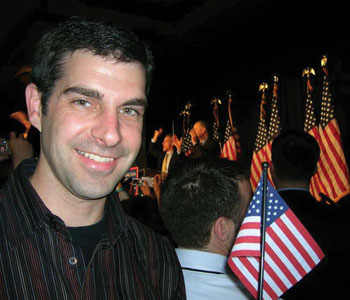Viewpoint
Congressional Fellows
Congressional fellows discuss enhancing science communication and ensuring proper care for wounded soldiers.

OSA/MRS Congressional Fellow Kevin Whittlesey
Kevin Whittlesey
When we look at issues such as climate change, stem cell research and alternative forms of energy, it is clear that science has taken a central role in public policy and the media. Yet the communication of scientific information is often overlooked in the education of our scientists. As a fellow in the office of Rep. Doris Matsui, I developed legislation that will address this need and improve the opportunities for graduate students in the sciences to develop communication skills.
Scientists are faced with the challenge of articulating technical topics to a broad range of audiences, each of which has a different level of interest and understanding. They must be effective at presenting findings to colleagues, for example, while also being able to pitch new discoveries to venture capitalists or explain their findings to non-scientists.
As a graduate student, I had the opportunity to attend a professional development course on scientific communication. It focused on skills that are integral to any scientific career, including poster design, effective oral presentation, grantsmanship and science writing. Although scientists must develop these abilities in order to succeed, many graduate students never receive any instruction on how to do them well.
Log in or become a member to view the full text of this article.
This article may be available for purchase via the search at Optica Publishing Group.
Optica Members get the full text of Optics & Photonics News, plus a variety of other member benefits.
